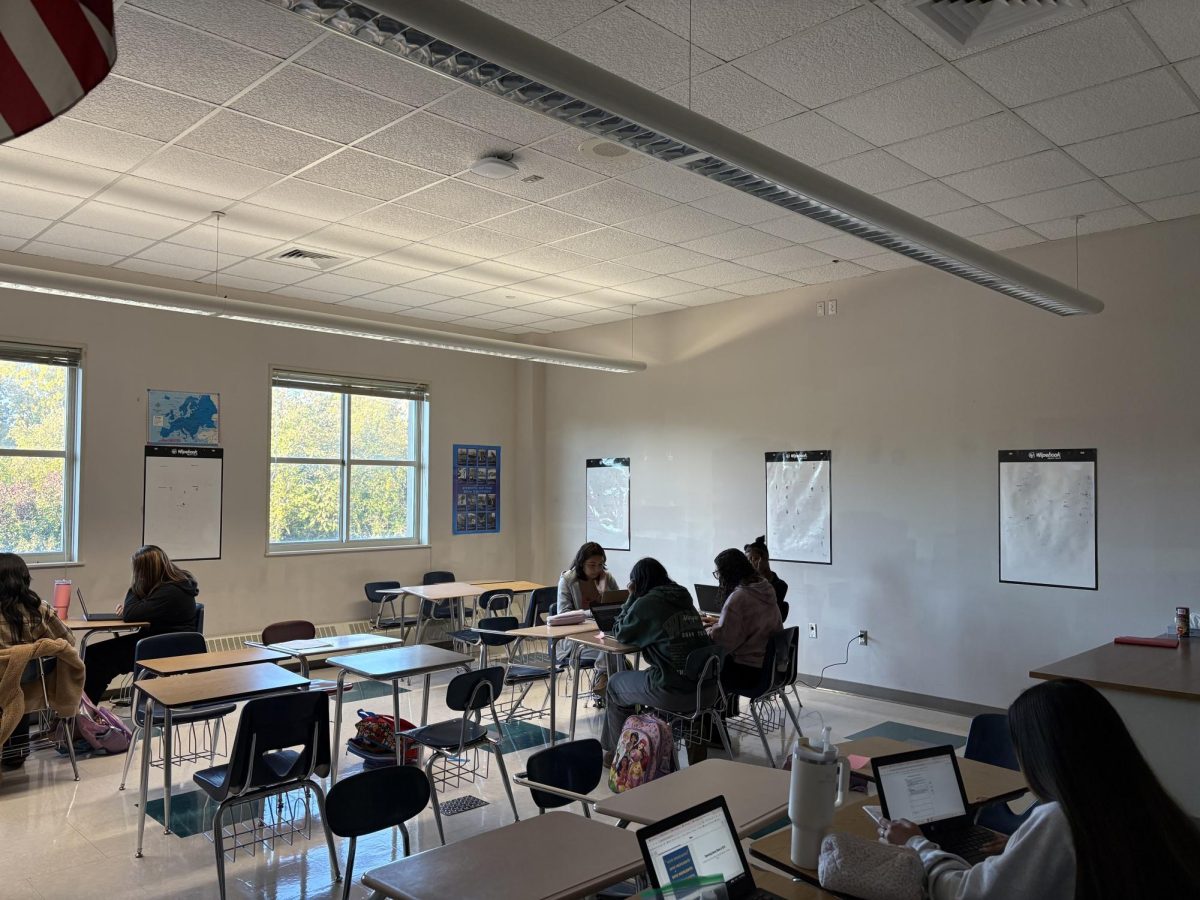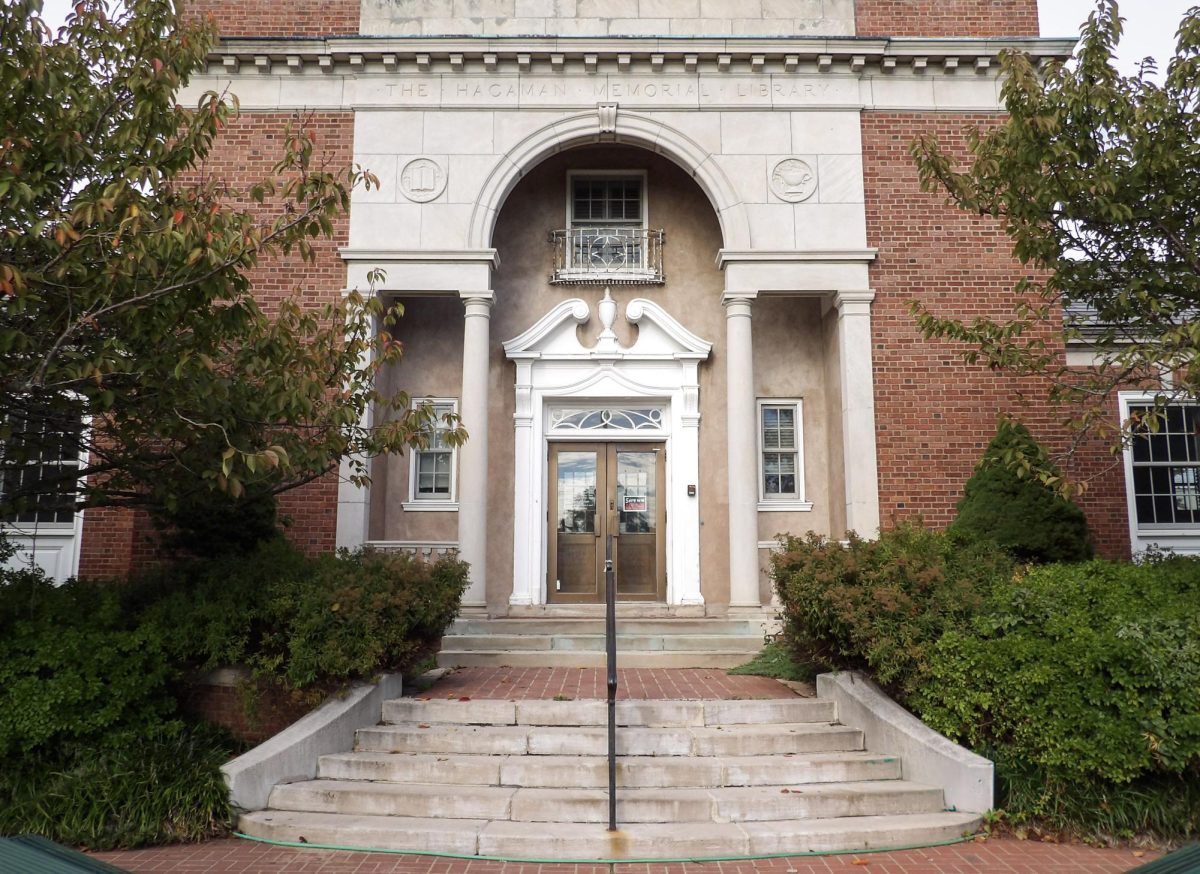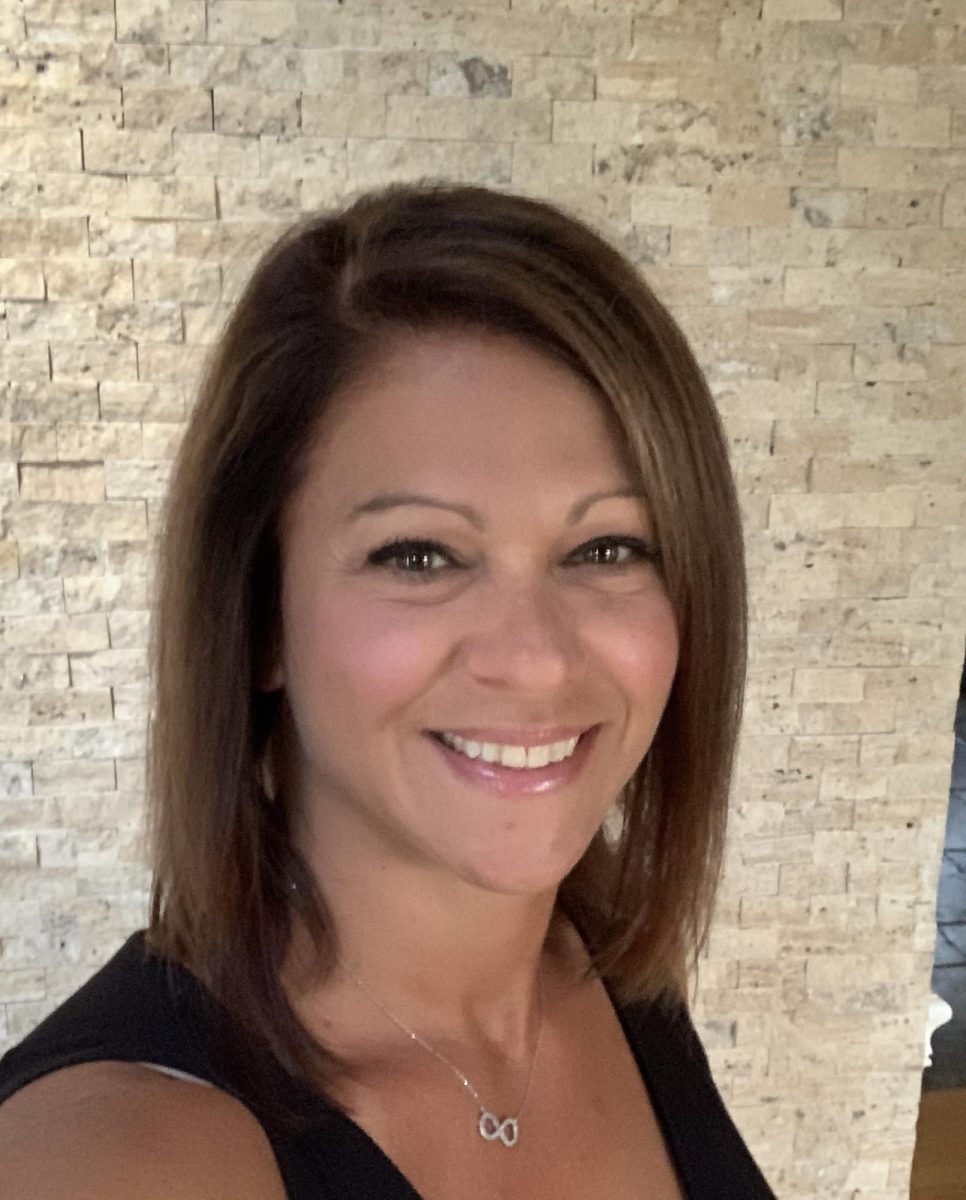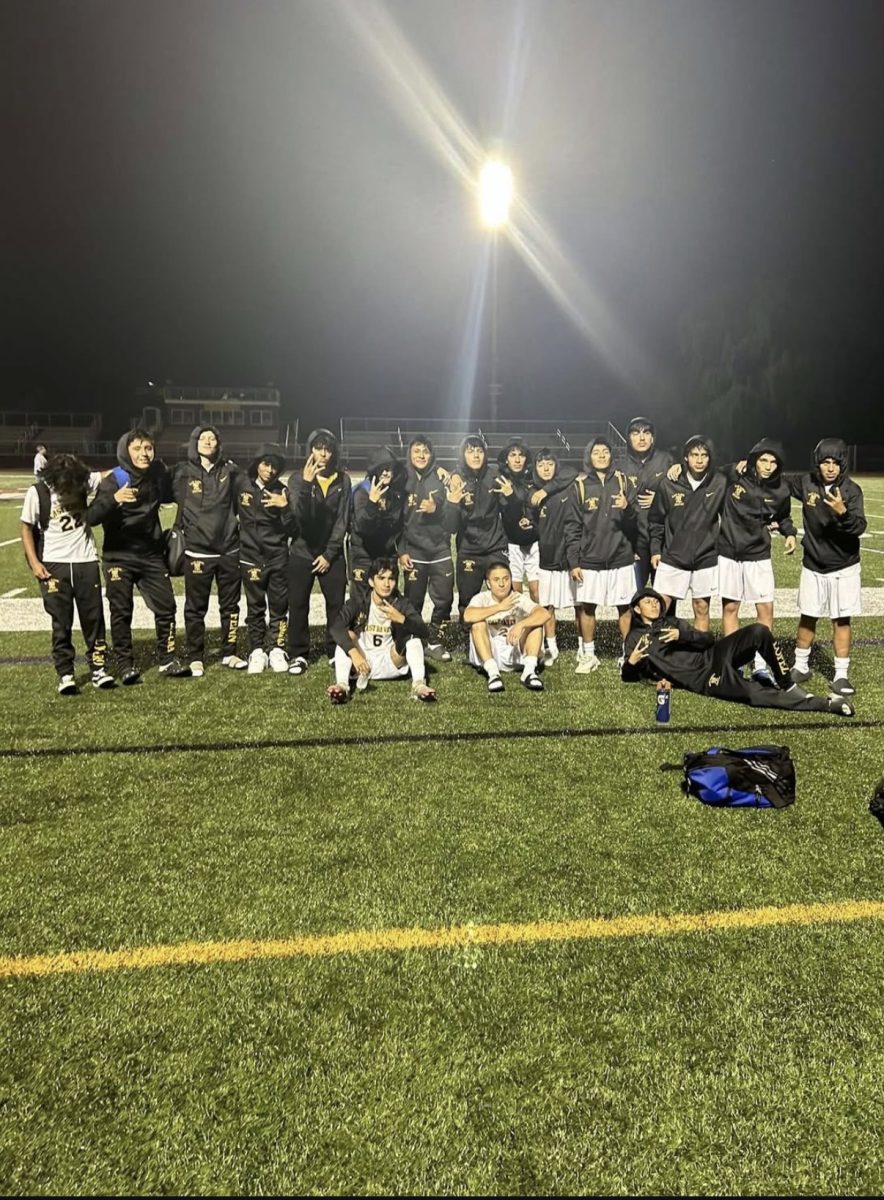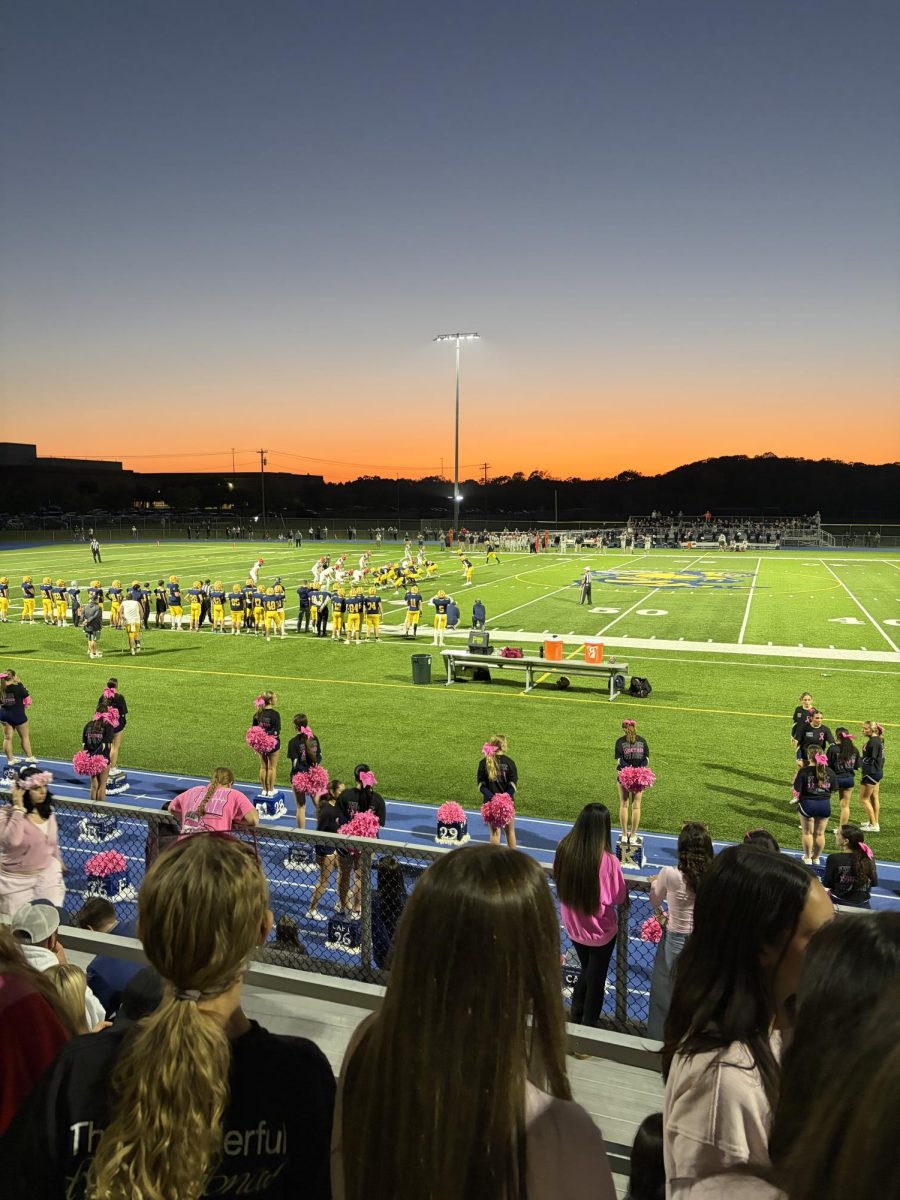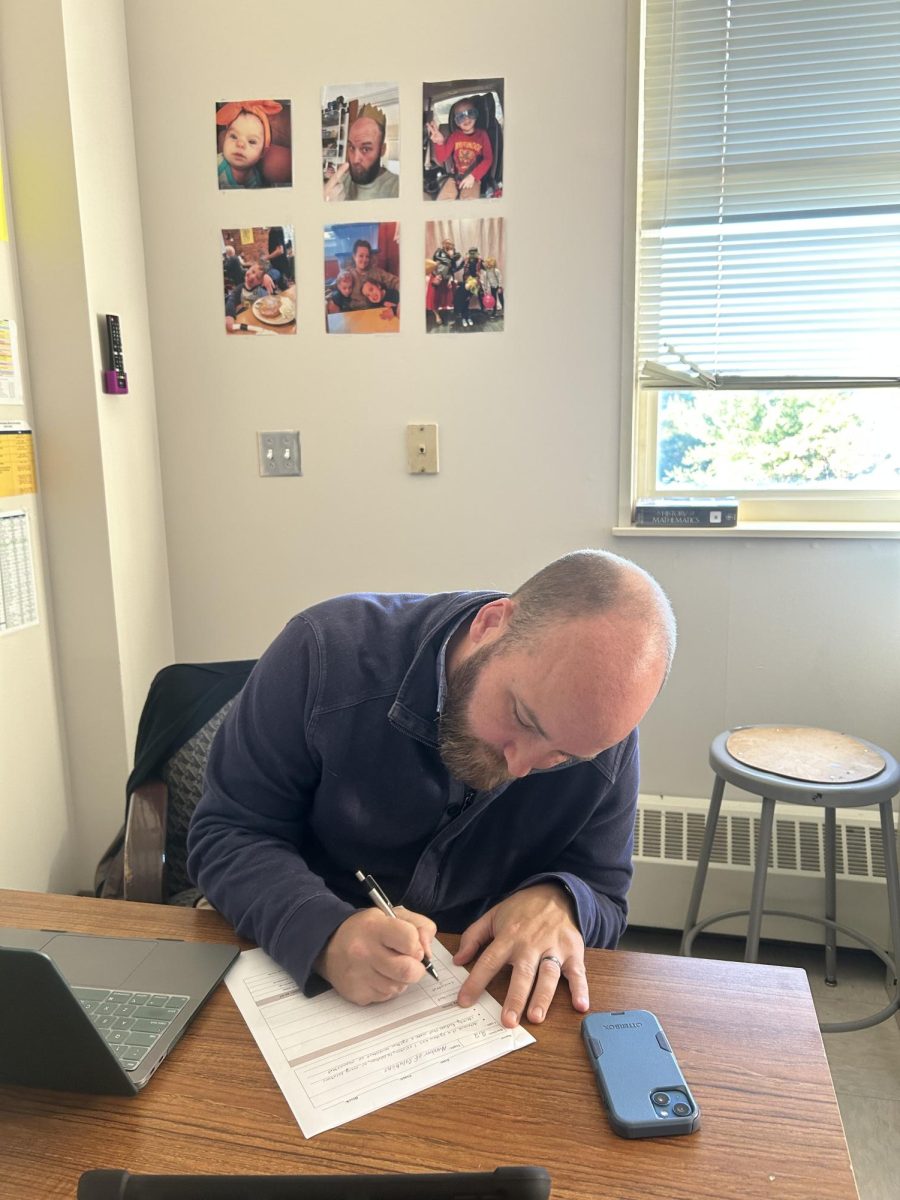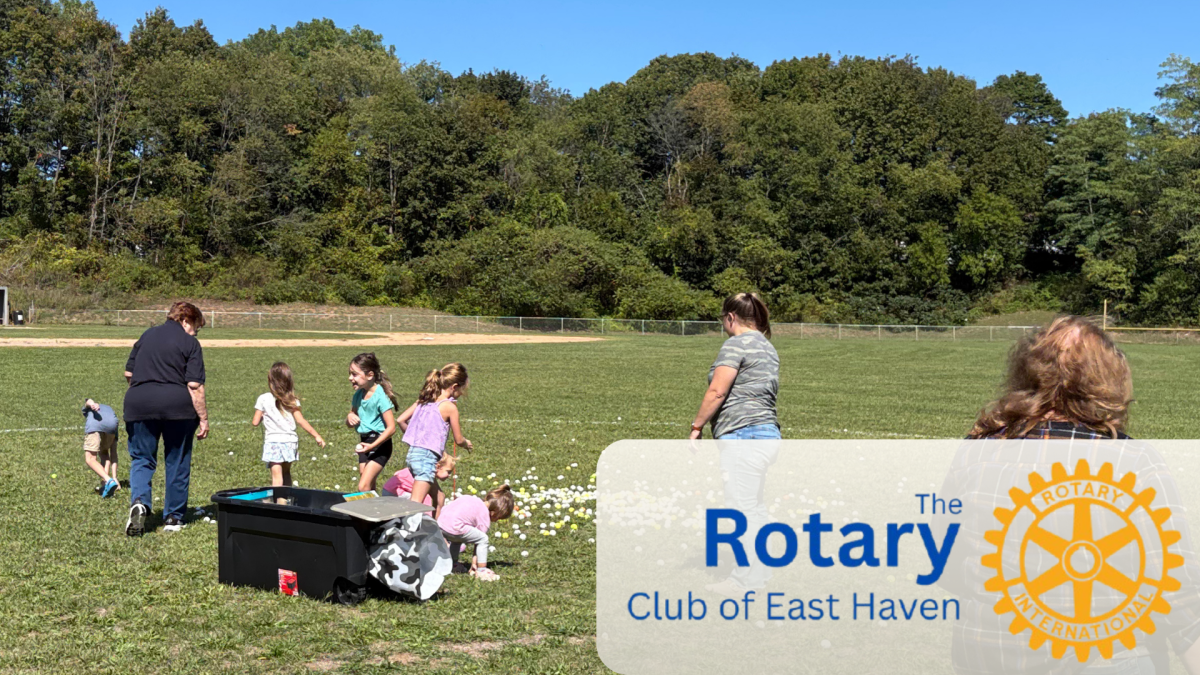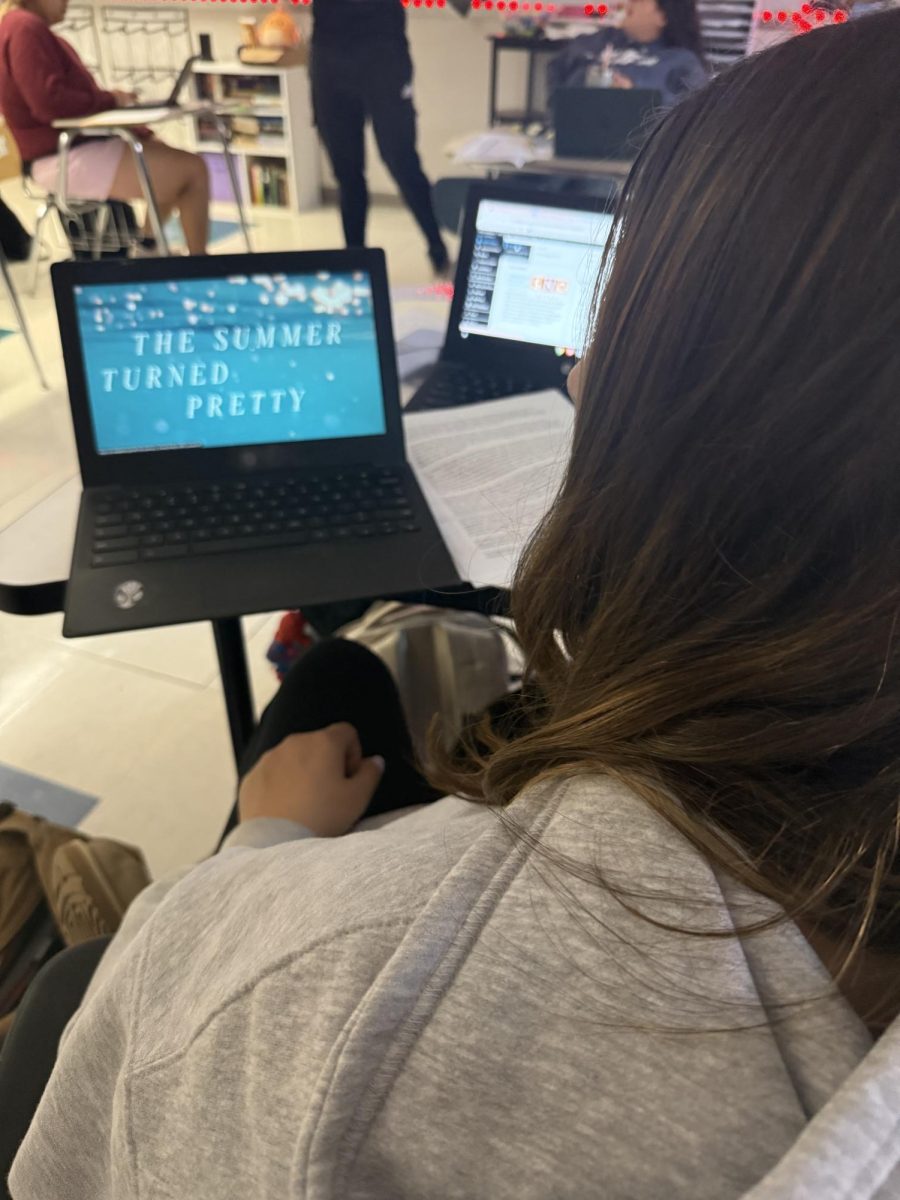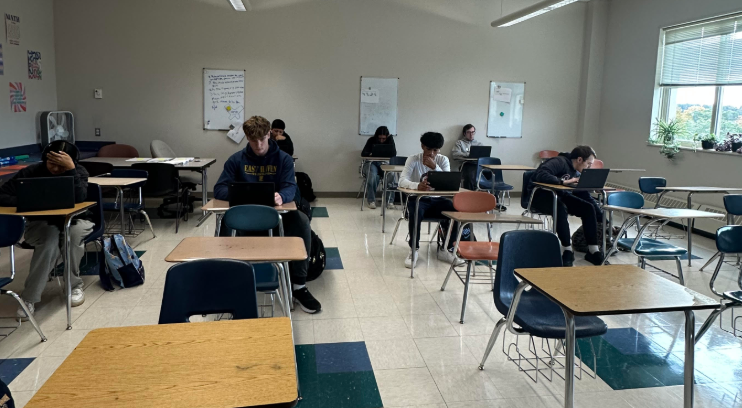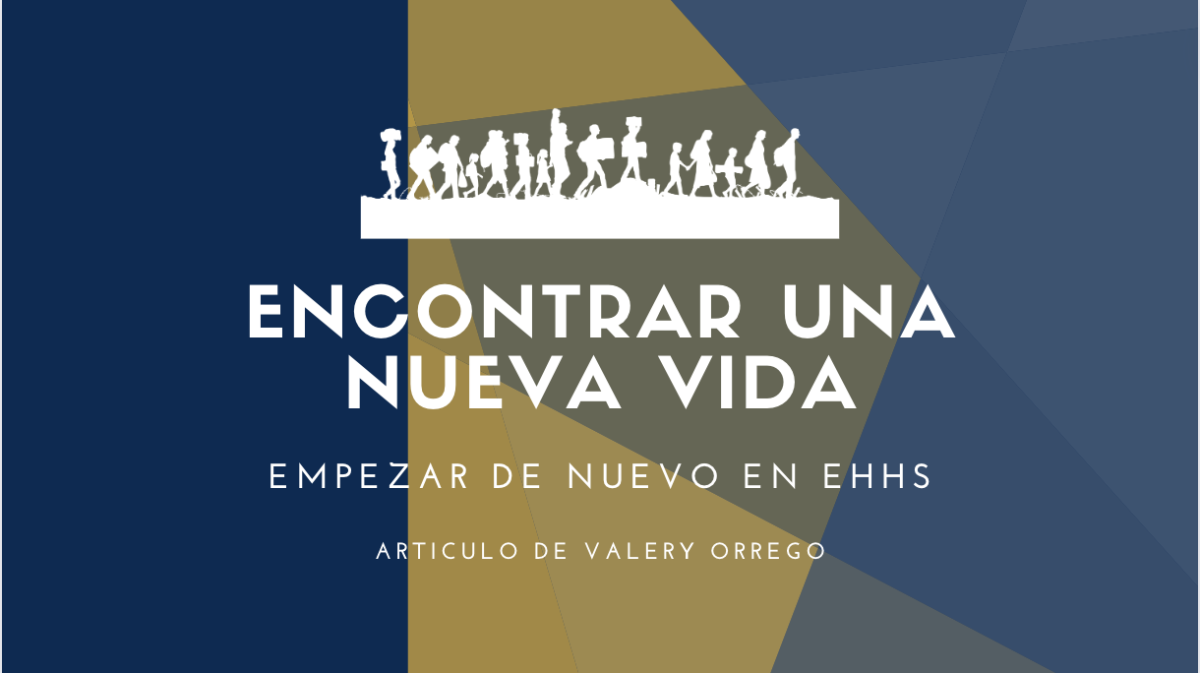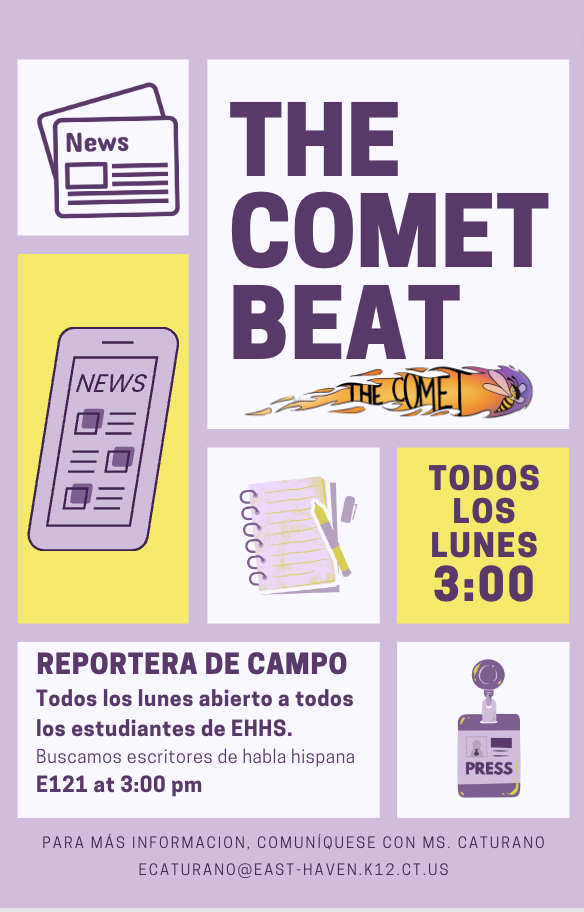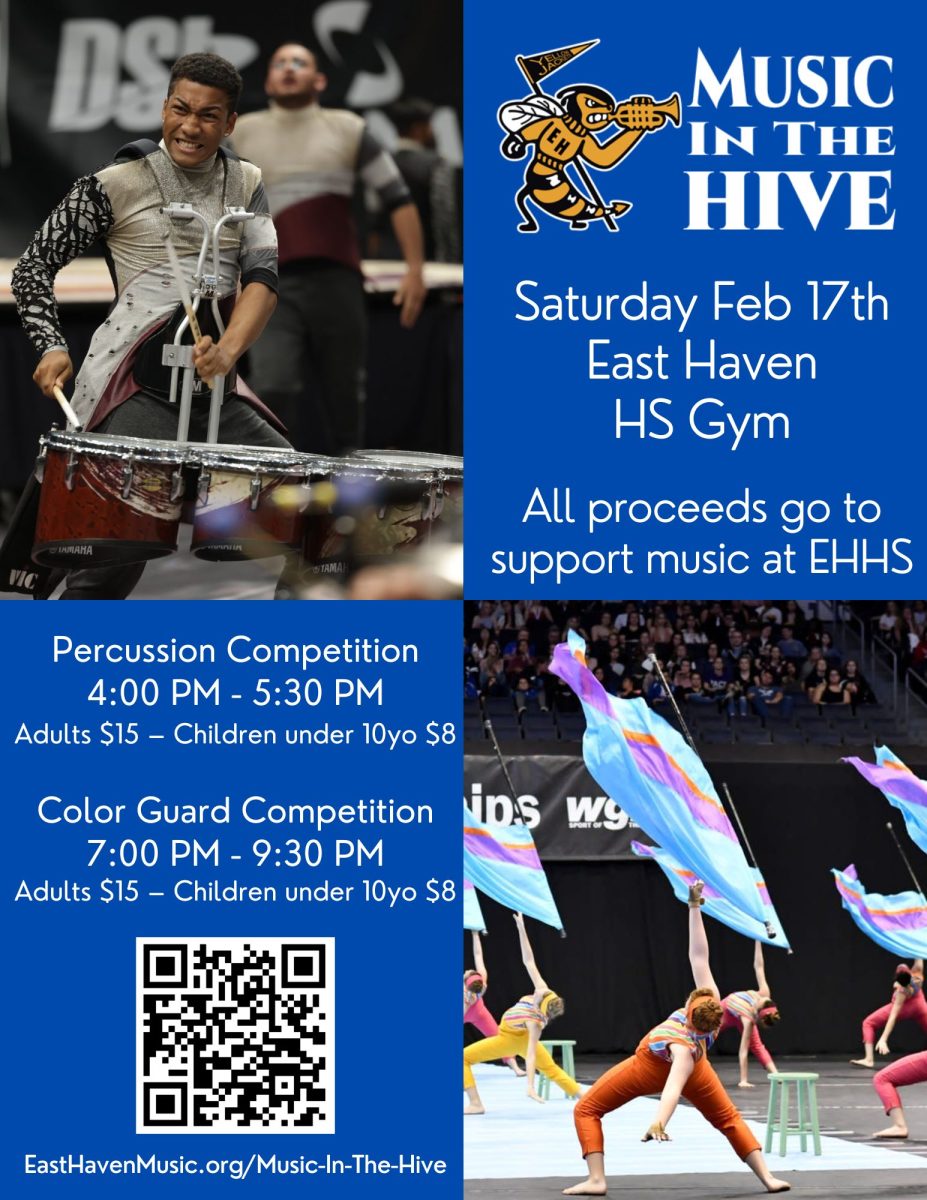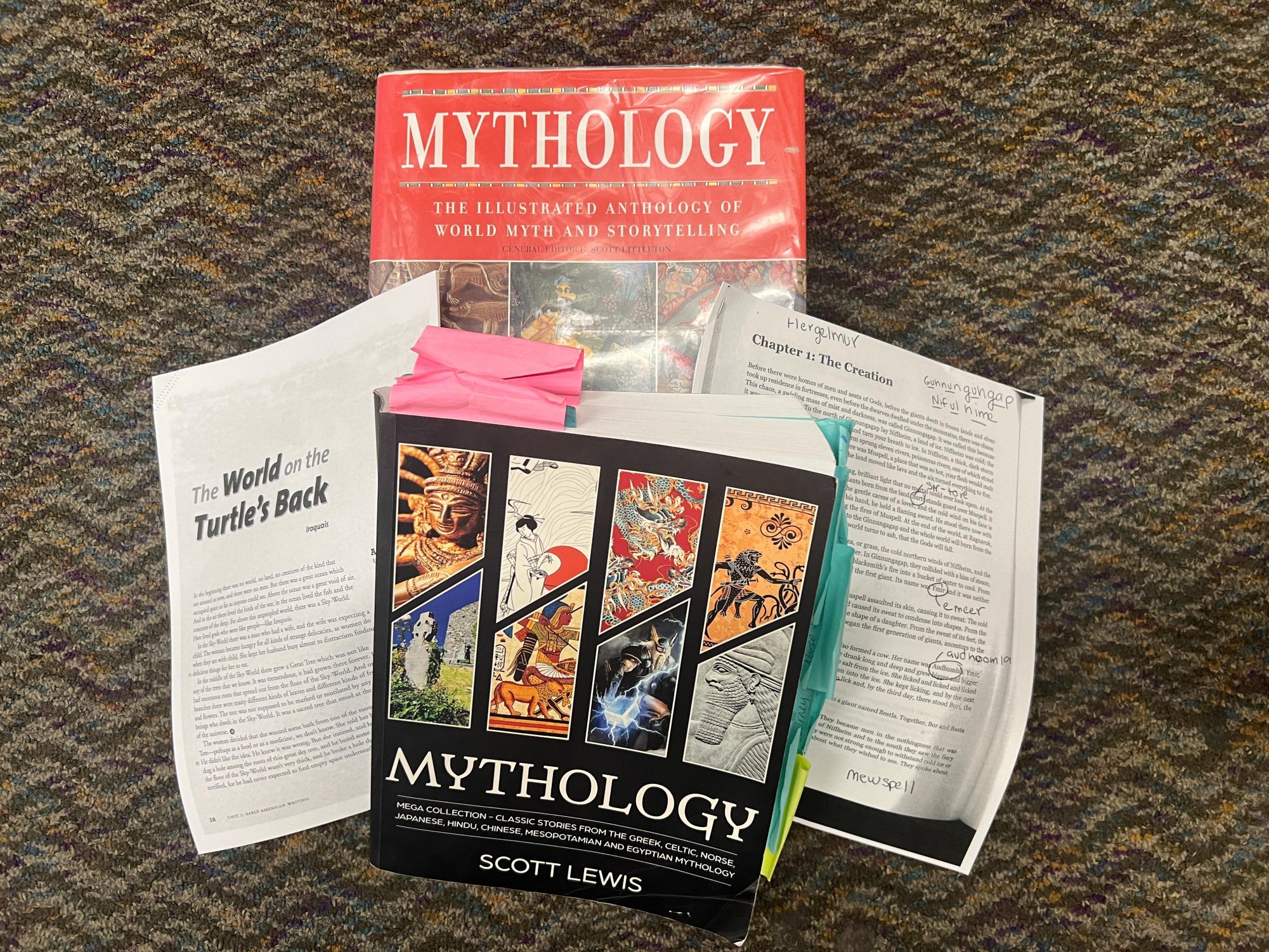At EHHS, senior electives are always a great opportunity for seniors to continue their English education through an entirely different lens. Mythology is one of the courses offered to seniors as an English elective. According to the 2024-2025 Program of Studies, the course is “an overview of the myths of various cultures including Greek, Norse, Egyptian, Asian, Native American, Russian, etc. Students will analyze recurring patterns and archetypes across cultures and periods. Through the study of various cultures as well as artistic adaptations of myths, students will discover how myths can help us understand ourselves and our world.”
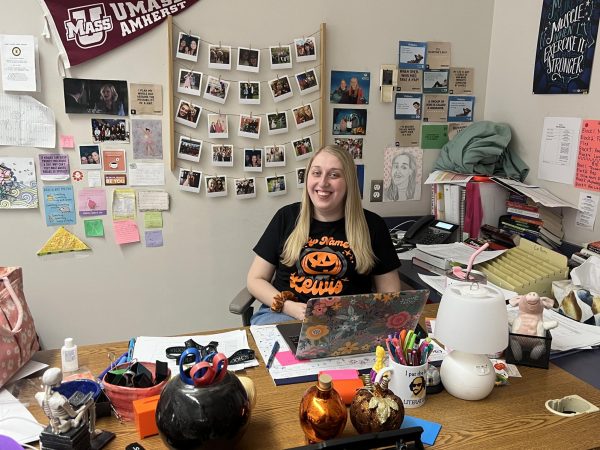
Ms. Kari Collins has been teaching the mythology class since she started teaching at EHHS seven years ago. She is an EHHS alumna. After graduating high school, Ms. Collins continued her education at the University of Massachusetts Amherst, getting a degree in both theater and English. She then attended the University of New Haven, where she obtained her master’s degree in secondary English education. She currently runs the Drama Club as director, and outside of school, she is the director of the young adult shows for the East Haven Arts Commission.
Mythology is a senior elective and it is a half-year course. Like any other English course, there is still reading and writing that occurs; however, it’s a course in which a student can choose and enjoy
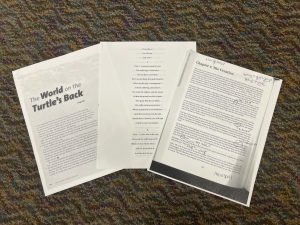
the topics they are reading and writing about. Some media features include texts (like short myths or excerpts), videos (such as Crash Course videos), slideshows, and a movie (Disney’s Hercules). A common misconception about the course and mythology is that it only covers topics from Greek mythology; however, this course covers myths from all over the world, including Greek, Norse, Russian, Japanese, and more. One of the essential understandings of the course is what all the cultures’ myths have in common and what they show about the shared human experience.
Mythology itself is a complicated and hard thing to define, as some scholars believe that it encompasses religion and folk tales, while other scholars have other ideas. Mythology also encompasses a wide variety of departments, as there is a bit of history, a bit of science, and more. However, mythology can be vaguely defined as a story with significance and staying power. This is the first unit of the class: how mythology is defined and what students already know about mythology in itself. This is then followed by a unit on archetypes, which are repeated patterns like “the hero” or “the sidekick” and how those started in myths and how they’re still featured in modern myths. Then, there is the “Explain the Unexplainable” unit, which features myths about the creation of the world, the creation of humans, and the way they explain unexplainable things. Next, there is a unit on heroes, featuring hero stories and the hero’s journey. Lastly, the final unit is called “Myths as a Mirror,” showing how universal myths can reflect things about ourselves.
Teaching the mythology class has had a significant impact on Ms. Collins in several ways. First, it has pushed her to deepen her understanding of mythology, as her background as an English major didn’t include deep studies in that area. This new knowledge allowed her to make connections she might not have encountered otherwise. Ms. Collins has also been continually impressed with the similarities and common themes across myths from different cultures. This has helped grow her appreciation for the shared human experience that these stories reflect. Also, working with students who are genuinely interested in mythology, as opposed to those in required English classes, has been a rewarding experience for her, creating a more positive learning environment for her and the students.
From a student’s perspective, the mythology class has been an eye-opening and impactful experience. Sofia Calixto, who chose the class on a whim, found herself quickly gaining confidence in both her English and history skills. She’s appreciated the chance to dive deeper into world history through myths and says the class has given her valuable writing practice that will be helpful for college. Learning about the diverse values and morals across different cultures has expanded her understanding and respect for beliefs beyond her own, making her more open-minded. Jacob Fowler, meanwhile, was initially surprised by the focus on analysis rather than pure history but has come to appreciate how myths reflect each culture’s values and beliefs. For him, studying myths has offered insight into why people seek answers to life’s mysteries and how myths can even be used to guide or control society. Gustavo Flores-Soto, who was already interested in mythology, says the class has helped him understand why we see similar character types in modern stories. He’s also enjoyed learning about how different cultures interpret situations uniquely, and he credits Ms. Collins’s engaging teaching style for making the class so enjoyable. All three students agree they’d recommend the class to anyone interested in history, mythology, or improving their writing skills.
Ms. Collins hopes that students will take away several key lessons and insights from the mythology course. One main goal is to foster empathy and cultural awareness by highlighting the shared human experiences reflected in the myths. Ms. Collins also aims to help students develop critical thinking skills by encouraging them to make connections and draw conclusions about human behavior and the world around them. She hopes that students will appreciate the enduring significance of myths and legends and their ability to reflect universal truths, even within modern popular culture. Ultimately, she wants students to see myths as a “mirror,” offering valuable insight about themselves and the world around them.


